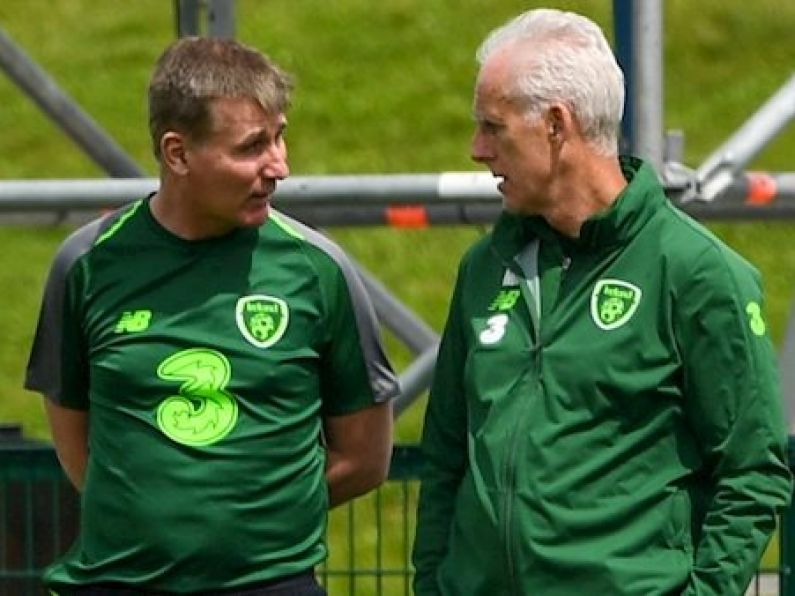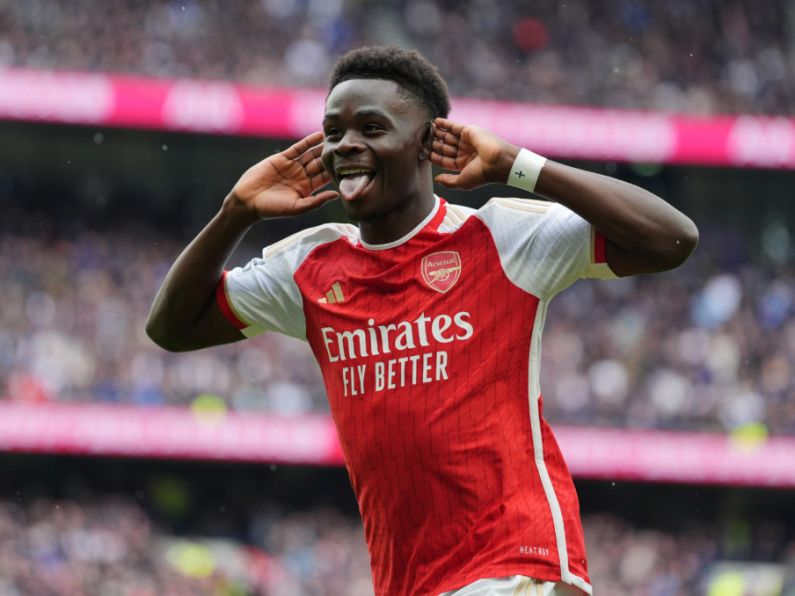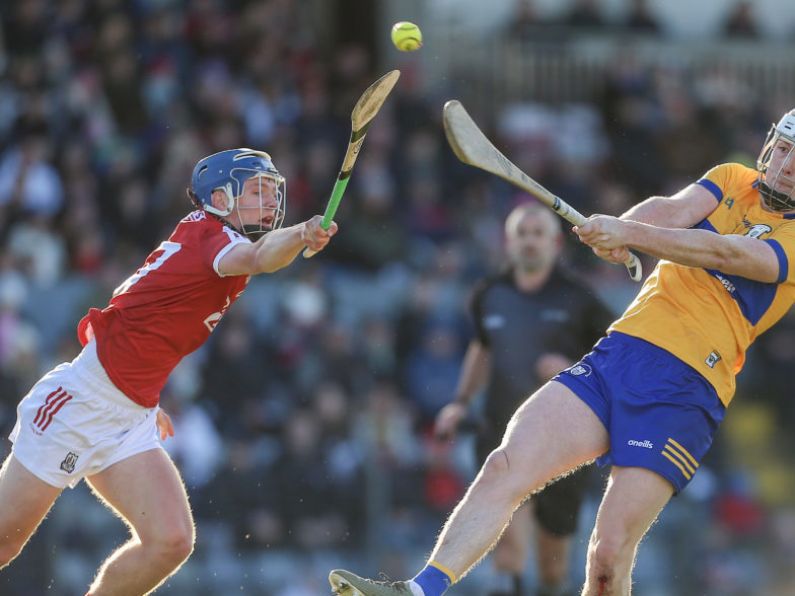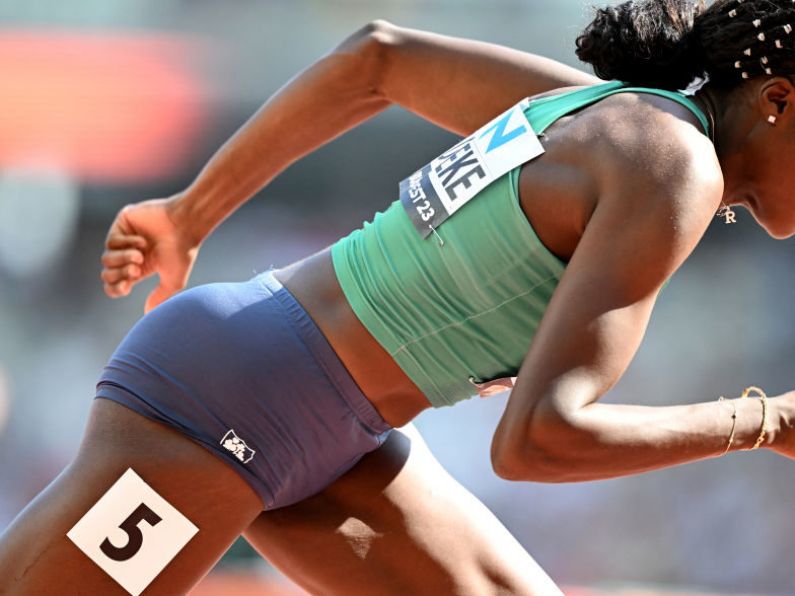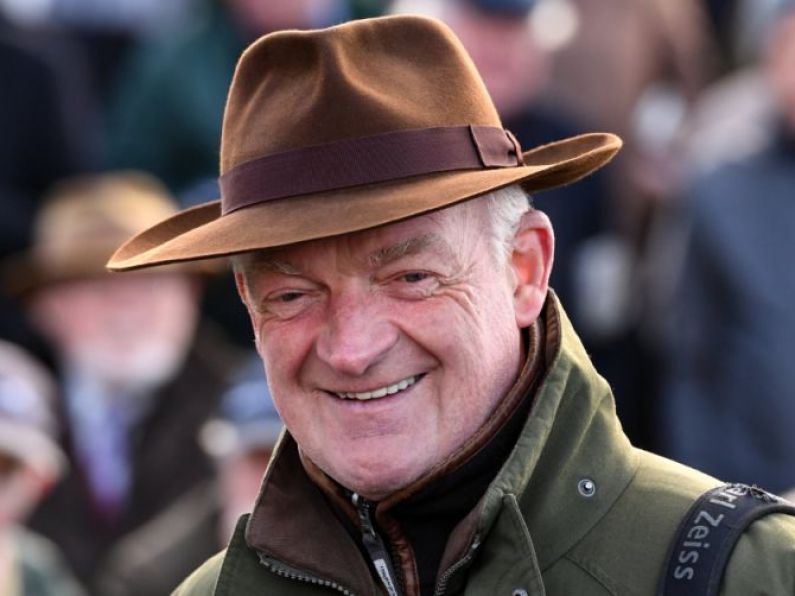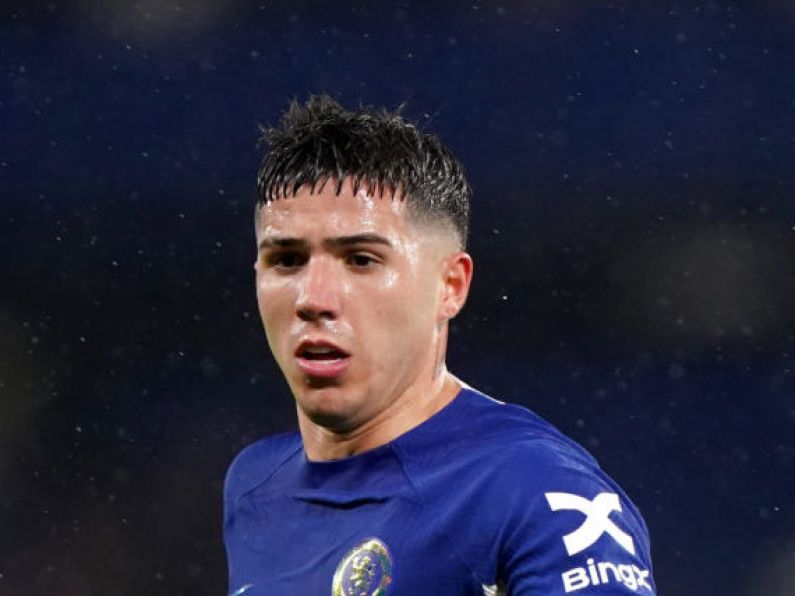By Liam Mackey
Even among those who had long been looking forward to the dawn of the Stephen Kenny era, there is bound to be — and most certainly should be — huge sympathy for Mick McCarthy that his second coming has ended the way it has: With an early and abrupt handover as the timing of the Ireland managerial succession plan, as originally envisaged when it was unveiled in November 2018, finally fell foul, like so much else in football, of the game-changing impact of the coronavirus pandemic.
Uefa’s decision last Wednesday to indefinitely postpone the play-off match against Slovakia beyond June was the trigger for the FAI to act swiftly and decisively on the basis of the terms of the deal which had been signed up to by both managers and which the current administration had inherited from the John Delaney regime.
Viewed from outside, the broad understanding was that McCarthy would remain in charge for as long as Ireland’s interest in Euro 2020 was maintained and then, in the hope that his and the team’s involvement would carry through until the tournament itself this summer — as originally scheduled — it was expected that the passing of the torch would have seen Kenny take over ahead of the next Nations League campaign and the qualifiers for 2022 World Cup.
However, once the Euro finals were put back a year and the play-off games postponed, the dates on the contracts assumed a fresh and more urgent significance since they stipulated that McCarthy’s contract was due to expire on July 31 with Kenny’s being activated the following day, August 1.
It’s understood that in coming to their decision, the FAI did not seek to ask Stephen Kenny to revisit the deal. Indeed, it has been emphasised by one source that, such was the “bullet proof” nature of the agreement, even if the play-offs had gone ahead as originally scheduled — and had McCarthy’s Ireland prevailed in the two games — the postponement of the finals for a year would still have seen Kenny take over for the tournament in 2021. This was something effectively confirmed yesterday by the FAI’s Interim CEO Gary Owens when he said: “We would have honoured Stephen’s contract.”
McCarthy was told of the FAI decision on Friday by Owens and, while the outgoing manager was said to be understandably disappointed, his immediate reaction was also described as “pragmatic” and “decent”. Recognising both that the situation had only come about because of extraordinary circumstances and that the contracts agreed were always going to be adhered to, he made no attempt to seek a stay of execution. His subsequent public comments — gracious and dignified, even as he described his situation as “bittersweet” — underlined as much.
Nor was there any question of Kenny applying pressure to accelerate the process: Cutting through all the complexities of a problem not of their own making, this was the new FAI essentially making a unilateral decision to stick with what had already been agreed.
In terms of the timing, it was the uncertainty about what lies ahead for football — not least the possibility that it could be November or even December before the play-off against Slovakia finally does take place — which prompted senior figures in Abbotstown to resolve what they called a “a difficult situation for the Association and for Mick and Stephen in particular” at the earliest opportunity. Uefa’s decision on Wednesday to postpone the game indefinitely had clearly concentrated minds.
McCarthy has always dismissed the notion that he ever saw his second term as Ireland boss as an opportunity to complete “unfinished business” but the irony won’t have escaped him that there could hardly be a more apt description of the manner in which his managerial sequel has now come to an end.
The positive knock-on for Kenny is that he gets a longer run-in to his debut as the senior boss though, given the exceptional circumstances in which we all find ourselves, it’s simply impossible at this point to guess when he will get a first opportunity to work with the players or whether his debut game will be the Nations League qualifier away to Bulgaria set for September 3 or, pending rescheduling, the postponed play-off against Slovakia.
The FAI are hoping the latter is in November, on the basis that the new manager should be able to accumulate at least a little game time before such a high stakes affair.
Significant question marks apply to all of that, of course, but before we look to the uncertain future, it has to be acknowledged that a succession plan which Brian Kerr wasn’t alone in thinking “mad” had actually been working out more or less as intended up to the cut-off. Automatic qualification might have gone a-begging but Ireland were still in the hunt for a place at Euro 2020/21 while Stephen Kenny’s U21s were not just winning games but winning friends and influencing people with their expansive, attacking football.
If you wanted to be literal about it, you could even say that McCarthy’s truncated tenure gave new meaning to the term ‘unqualified success’. There were obvious lows— the back-to-back draw with Georgia and defeat to Switzerland being the biggest double-whammy — but also an upbeat victory in Dublin against the Georgians and strong performances away and, most encouragingly, at home to Denmark.
And while he never managed to emulate the greatest days and nights of Irish football under Martin O’Neill— Germany, Italy, Austria, Wales et al — McCarthy certainly did much to banish the mood of doom and gloom, off the pitch as well as on it, which appeared to have enveloped the camp during his predecessor’s last flat-lining campaign in charge.
In short, with minimal preparation time and given just the one shot at glory, it cannot be denied McCarthy achieved his primary target of keeping Ireland on track for the Euro finals and, in doing so, left the team in a much better place than he had found it.
While it’s easy to toss out stuff about how he has been handsomely rewarded for his pains in monetary terms, anyone who has any genuine sense of what makes McCarthy tick will know that nothing could come close to matching the pride he would have felt — not just for himself and his staff and players but also in terms of what it would mean to the fans and the country — had he been able to oversee Ireland’s involvement in matches played on home soil in the finals of the European Championships.
But, sadly for him, that is not to be, and now it’s over to Kenny to see if he can, first, complete McCarthy’s unfinished business and then, over what we all hope will be the longer haul, do nothing less than effect a sea-change in the way the Irish senior team goes about its business.
It’s a hell of a lot to ask, of course, but it’s precisely because of what we know of Kenny’s ambitious and enlightened football philosophy — as seen to such thrilling effect in his domestic and European successes with Dundalk and then in his first campaign as an international manager with the U21s — that people are now looking to the
48-year-old Dubliner almost as a
messiah.
Given the combination of his recent experience with the our rising stars and the helpful reality that a healthy number of the senior side have League of Ireland connections — as, indeed, does one of his new assistants, Damien Duff — there should be no concern about Kenny’s ability to command respect and enforce his authority in the dressing room.
But, for all his undoubted gifts as a manager, he can only work with the current material at his disposal — which is hardly the richest in Irish
football history — and will also need no telling that the senior international game represents a more exacting test than anything he has encountered to date, especially when you consider that the first big order of business will be for him to negotiate what are effectively a cup semi-final and final, against
capable opponents, away from home.
But, in these most challenging of times for all of us, it’s more than a little consoling to think that, when the current dark days have passed, a fascinating new chapter in Irish football is set to begin.
And let’s all hope that — despite its controversial beginning and premature end — we eventually learn that, actually, nothing succeeds like succession.
